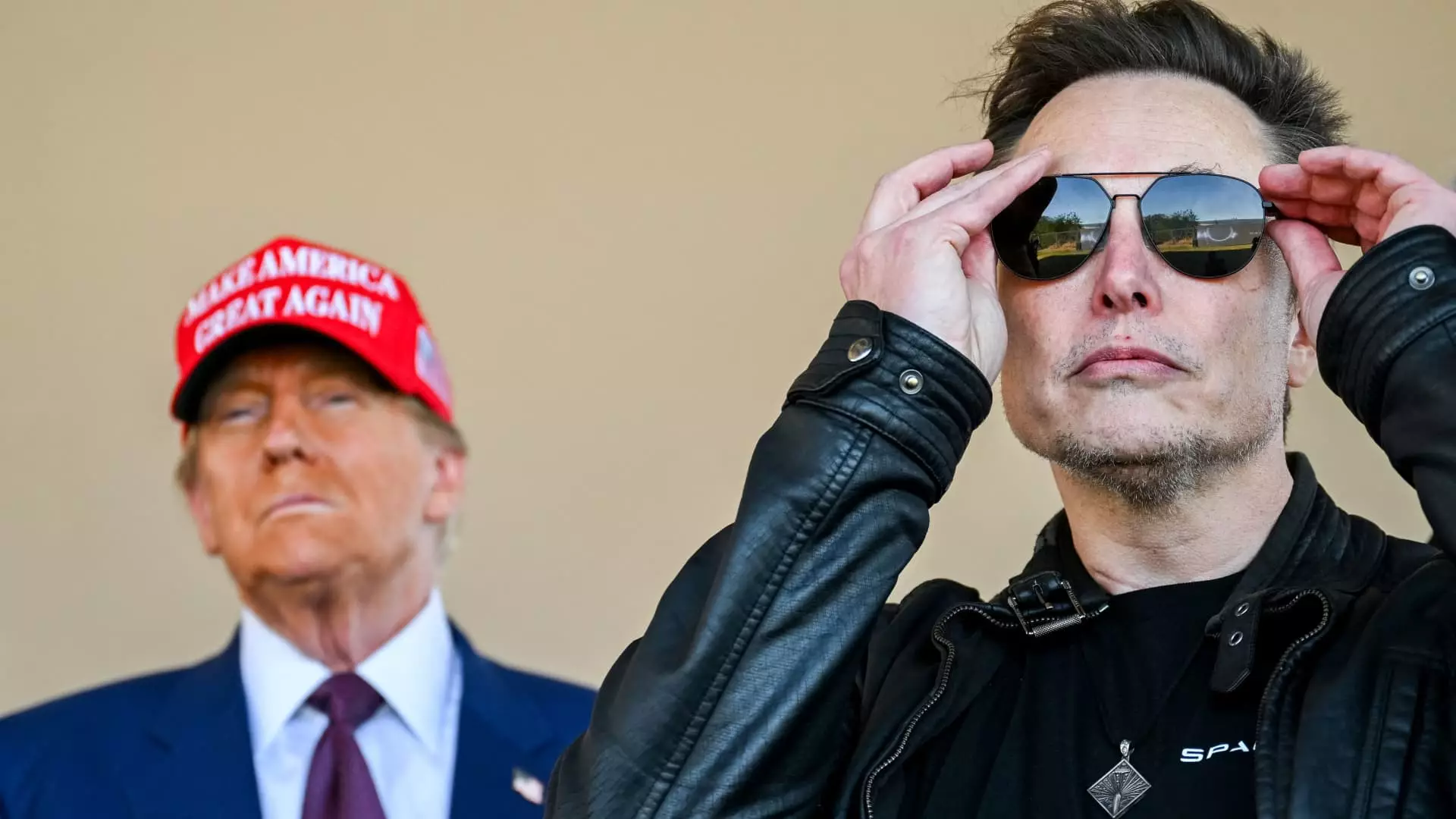Elon Musk’s array of enterprises spans multiple industries, firmly placing him at the forefront of today’s technology and innovation landscape. Not only is he the driving force behind Tesla, a pioneer in electric vehicles, but he has also ventured into social media with X (formerly Twitter), artificial intelligence through xAI, and even neurotechnology via Neuralink. Additionally, his Boring Company is taking on urban infrastructure challenges, while SpaceX is leading the charge in aerospace innovations. Musk’s companies don’t merely thrive in the market; they are significantly supported by federal funding, particularly SpaceX, which has garnered substantial government contracts that amount to over $19 billion.
The lucrative contracts awarded to SpaceX underscore the government’s role in bolstering private enterprises, particularly in sectors deemed vital for national interests. According to FedScout, a consultancy focused on government contracting, SpaceX’s projections suggest a sustained influx of federal dollars, potentially landing billions annually. This financial relationship indicates a strategic alliance between Musk’s companies and government initiatives, often positioning Musk to benefit from the very regulatory frameworks he claims hinder innovation. Such dynamics create a complex interplay of influence that merits scrutiny, particularly if Musk’s influence within government circles were to expand, especially under a potential second Trump administration, which could prioritize privatization and deregulation.
Musk’s alignment with political figures like Donald Trump showcases his intent to reshape the regulatory landscape that governs his businesses. Recently, Musk and fellow entrepreneur Vivek Ramaswamy announced their involvement in a governmental initiative aimed at reducing bureaucratic oversights, dubbed the Department of Government Efficiency (DOGE). Their advocacy for deregulation is cloaked in the rhetoric of reforming outdated regulations that they assert inhibit progress. By nullifying rules they deem unnecessary—many of which were not passed through standard legislative processes—Musk and Ramaswamy are advocating for an executive-driven approach to streamline governance.
However, such radical shifts pose potential risks. The assertion that streamlining will lead to innovation overlooks the critical role of regulations that ensure consumer safety and environmental protection. Critics argue that loosening regulatory constraints for industries like aerospace or AI could lead to unforeseen consequences, from safety breaches to ethical dilemmas.
Audit Failures and Accountability
The call for rigorous auditing of federal agencies, highlighting failures like the Pentagon’s repeated inability to pass an audit, raises important questions about accountability in government spending. While the push for efficiency can lead to cost savings, it also emphasizes the need for transparency in how taxpayer dollars are utilized within these agencies. Alonso Kolodny of CNBC aptly notes that Musk’s pursuit of deregulation would likely free him from rigorous oversight, potentially paving the way for his companies’ unchecked expansion.
As Musk’s business ventures continue to evolve, their interconnection with governmental policies will play a crucial role in shaping the future framework of innovation. The impending decisions by political figures will not only impact Musk’s enterprises but also raise broader discussions about the balance between fostering innovation and ensuring responsible oversight. Musk’s vision, if unregulated, might lead to colossal advancements; however, the potential repercussions of such a path warrant careful consideration.


Leave a Reply